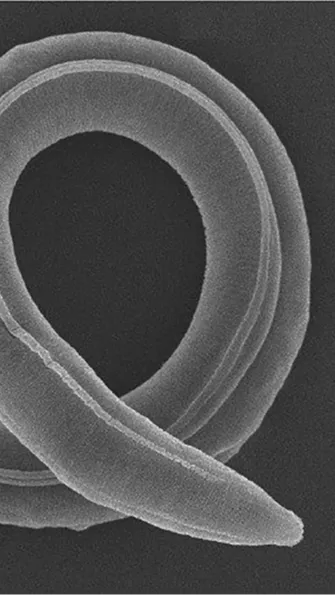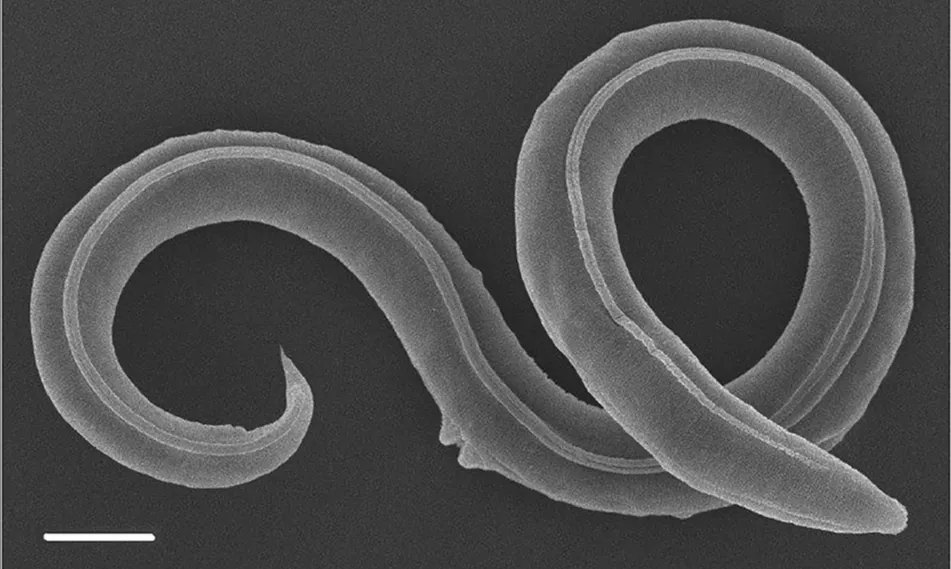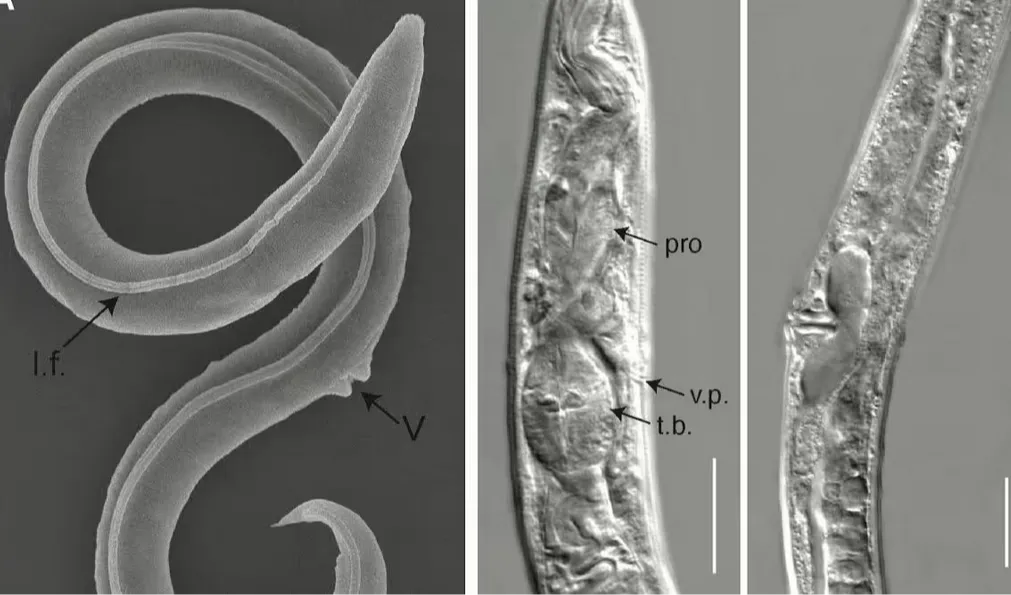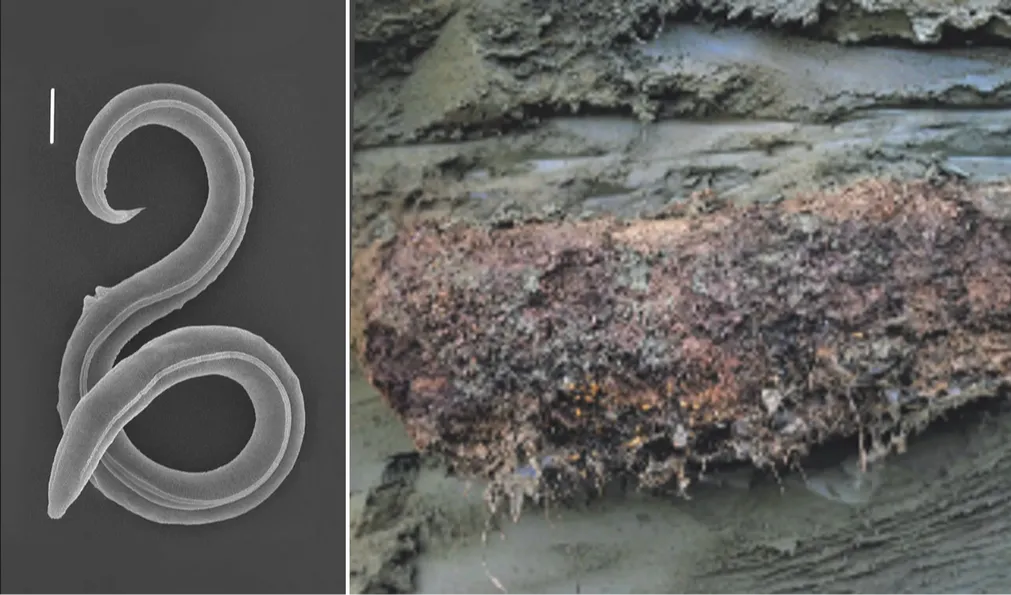


Scientists have succeeded in reviving a 46,000-year-old parasite previously thought to be extinct. These parasites are known as microscopic nematodes or roundworms. This discovery was documented in a study published in PLOS Genetics journal.
Scientists found two nematodes in cryptobiosis at sub-zero temperatures in 2018 in Siberian permafrost.
Cryptobiosis is a state of deep sleep that turns off living things' metabolic systems and reproductive activities to survive in extreme environmental conditions.
These creatures have been sleeping dead for thousands of years.

Scientists brought these prehistoric worms back to life through food and water in a laboratory. This finding surprised researchers because this roundworm may now hold the record for living in deep sleep longer than previously thought.

Previously, it was thought that roundworms could only survive in cryptobiosis for about 40 years, but these findings prove otherwise.
Genetic analysis showed that these worms were a species of Panagrolaimus kolymaensis, previously thought to be extinct.

An extension of the generation time from a few days to thousands of years can contribute to re-establishing family that have become extinct.
This is notes